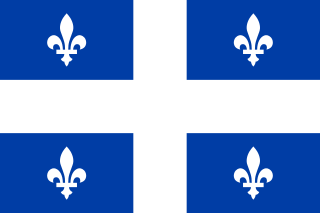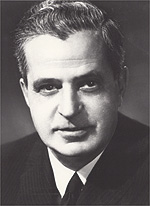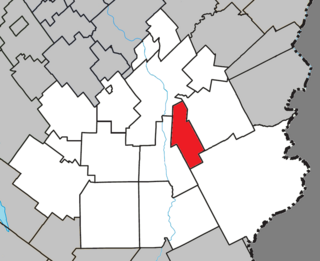| Canadian citizenship |
|---|
 |
| This article is part of a series |
| Immigration |
| Canadian nationality law |
| Agencies |
| Immigration, Refugees and Citizenship Canada |
| Citizenship classes |
| Issues |
| Demographics of Canada |
The Ministry of Immigration, Francisation and Integration is a government department in the Canadian province of Quebec responsible for immigration in Quebec. The department has changed its name to Ministry of Immigration, Francisation, and Integration [1] from its previous title of Ministry of Immigration, Diversity, and Inclusion after the CAQ government, a centre-right to right-wing Quebec nationalist and autonomist provincial political party in Quebec took power in October 2018. The word "Diversity" has been removed from the department's title. This name change is in response with the CAQ government's anti immigrant policy to prioritize culturally fit French speaking immigrants from French speaking countries only.

The provinces and territories of Canada are sub-national governments within the geographical areas of Canada under the authority of the Canadian Constitution. In the 1867 Canadian Confederation, three provinces of British North America—New Brunswick, Nova Scotia, and the Province of Canada —were united to form a federated colony, becoming a sovereign nation in the next century. Over its history, Canada's international borders have changed several times, and the country has grown from the original four provinces to the current ten provinces and three territories. Together, the provinces and territories make up the world's second-largest country by area.

Quebec is one of the thirteen provinces and territories of Canada. It is bordered to the west by the province of Ontario and the bodies of water James Bay and Hudson Bay; to the north by Hudson Strait and Ungava Bay; to the east by the Gulf of Saint Lawrence and the province of Newfoundland and Labrador; and to the south by the province of New Brunswick and the US states of Maine, New Hampshire, Vermont, and New York. It also shares maritime borders with Nunavut, Prince Edward Island, and Nova Scotia. Quebec is Canada's largest province by area and its second-largest administrative division; only the territory of Nunavut is larger. It is historically and politically considered to be part of Central Canada.

The Coalition Avenir Québec is a centre-right to right-wing Quebec nationalist and autonomist provincial political party in Quebec, Canada.
Contents
- History
- Immigration
- 2019 Reform
- Proposal for a values test, Conditional Residence & Deportation of residents who fails the tests
- Cancellation of 18,000 Mon Projet CSQ Applications
- Quebec has the highest immigration delays compared to rest of Canada.
- Application to immigrate to Quebec
- Mon projet Québec
- Arrima Portal
- Quebec immigration uncertainty and delays.
- Temporary suspension of PEQ category.
- Number of Quebec Selection Certificates Issued
- Processing times - Express Entry vs. Quebec Skilled Worker Programme
- See also
- References
- External links
- English
- French










